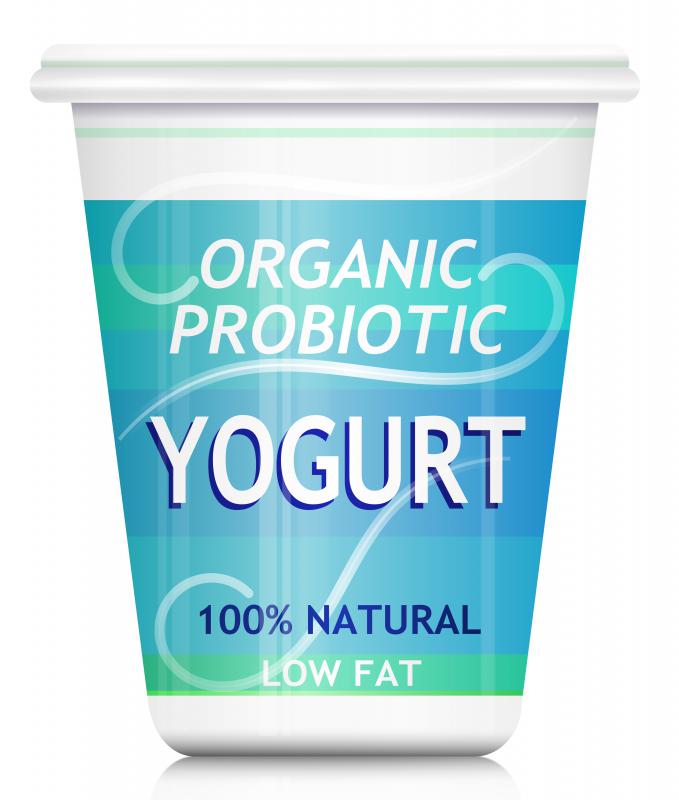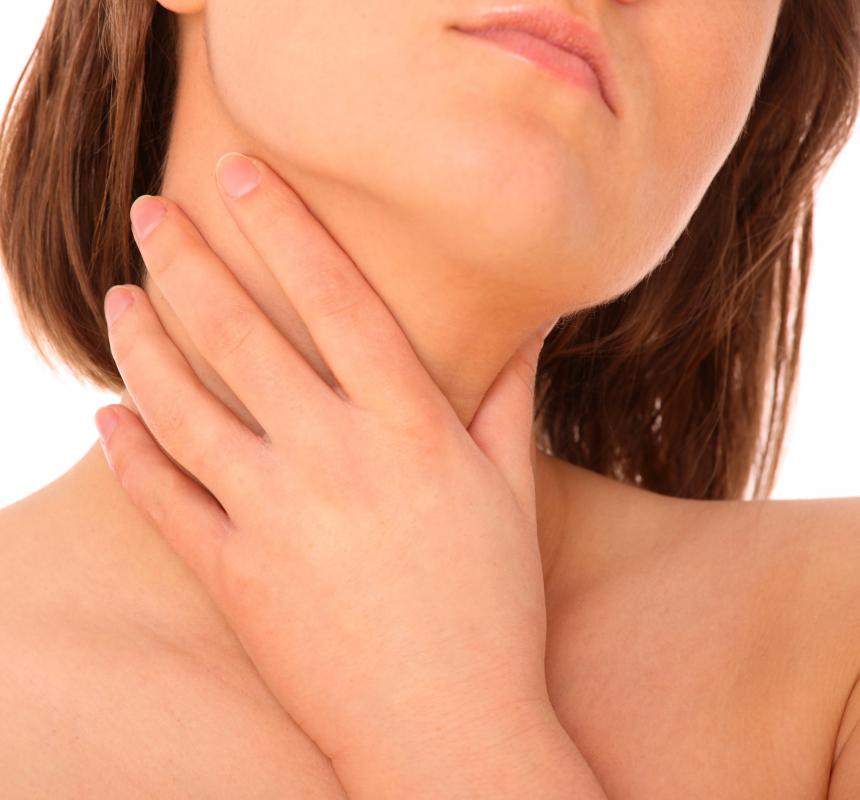At WiseGEEK, we're committed to delivering accurate, trustworthy information. Our expert-authored content is rigorously fact-checked and sourced from credible authorities. Discover how we uphold the highest standards in providing you with reliable knowledge.
What are the Symptoms of Oral Yeast Infection?
Oral yeast infections are caused by a very common fungus called Candida albicans, the same fungus responsible vaginal yeast infections. Candida lies dormant in the mouths and throats of most people without causing infection. If the immune system is weakened by illness, cancer, or medications, however, fungi can activate and cause a range of uncomfortable symptoms. The most common symptoms of oral yeast infection include white or yellow lesions on the inner cheeks and tongue, pain and tenderness, difficulty swallowing, and loss of taste. Probiotics and antifungal drugs can usually clear up symptoms of oral yeast infection in about two weeks.
Infants are at the highest risk of developing oral yeast infections since their immune systems are not strong enough to fight off the fungus. Older children, adolescents, and adults who have immune system-compromising disorders such as HIV or cancer can also develop infections. Occasionally, an otherwise healthy individual may experience a mild infection. The symptoms of oral yeast infection are similar in most cases.

The first symptoms of oral yeast infection typically include creamy sores and dull aches in the mouth. Lesions can develop on the tongue, cheeks, gums, or roof of the mouth. They are usually small, less than 0.5 inches (about 1.25 centimeters) in diameter, and rough to the touch. Mouth sores can be very tender and bleed easily when they are irritated by the tongue, a toothbrush, or food. Some infants and older people have trouble swallowing and speaking due to constant pain.

Additional symptoms of oral yeast infection may include desensitized taste buds, dry mouth, and cracking around the corners of the lips. Some patients report a cotton-like feeling inside their mouths due to dryness and irritation. Loss of appetite and resulting nutritional deficiencies can occur when a person cannot taste food and experiences painful swallowing.

Without treatment, Candida albicans can start to spread from the mouth to the esophagus. An infected throat can develop lesions similar to the ones found in the mouth and cause severe swallowing difficulties. It is also possible for fungi to spread to the digestive tract and lungs in people with very weak immune systems, which can cause shortness of breath, high blood pressure, and several other serious symptoms.

A doctor can diagnose a yeast infection by evaluating the appearance of lesions and testing mucus samples for the presence of Candida. Patients who are in relatively good health may be instructed to rinse their mouths out with warm saltwater and eat probiotic yogurt for a few days until symptoms improve. An oral antifungal medication may also be prescribed for infants and people with weak immune systems.
AS FEATURED ON:
AS FEATURED ON:
















Discussion Comments
@stoneMason-- Whatever you do, do not try to scrape the lesions.
Oral thrust lesions look like they might just come off with scraping but they do not and it is dangerous. It can cause bleeding and a bacterial infection on top of the yeast infection.
@stoneMason-- Yes, eat lots of plain yogurt. Get the probiotic kind if you can as those are even more beneficial. But regular plain yogurt will work too because all yogurt contains acidophilus. Just avoid yogurts with sugar because sugar makes yeast infections worse.
Something else that you can do is rinse your mouth either with salt water or vinegar and water. You can dissolve some salt in warm water and gargle with it several times a day. Or you can combine water and vinegar and gargle with that. Both help kill yeast in the mouth.
Reducing sugars, carbohydrates and processed foods in your diet or avoiding them completely will also help. If these don't work, you need to see your doctor for medications. Natural remedies can treat a mild oral yeast infection but more serious, persistent infections require medication.
I have symptoms of an oral yeast infection. I noticed the lesions recently after brushing. Brushing irritated a lesion and there was suddenly a pain in my cheek. After a close look, I discovered the white creamy lesions. There is one on the inside of both of my cheeks.
So what do I do now? I prefer not to take medications if I can treat the infection naturally. I'm headed to the grocery store to buy yogurt now. Is there anything else I can do?
Post your comments